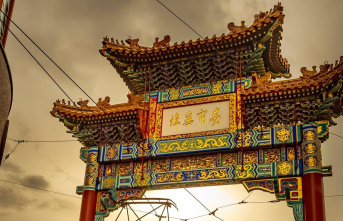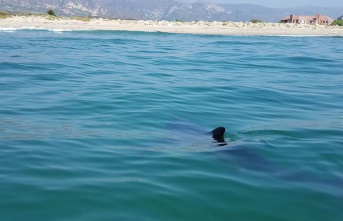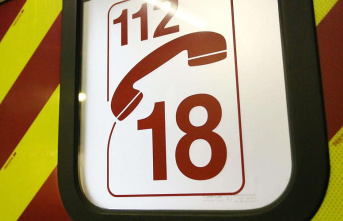Police on alert as Israeli and Palestinian police clash, parade of Israelis waving national Flags. Tensions are high in Jerusalem on Sunday for the "march to flags", marking Israel's conquest of Jerusalem's eastern portion of Holy City.
The march began at 3:00 p.m. and ended at 3:45 p.m. Itamar Ben Gvir, the Israeli far right tenor, went to the Esplanade of Mosques. This holy site is at the center of Israeli-Palestinian tensions in East Jerusalem's Old City, which has been occupied by Israel since 1967. The third holiest place in Islam is also the holiest in Judaism, whose name it is "Temple Mount".
He said, "I came to support the security force and I expect that the police will bring order to Temple Mount...I am here today to affirm that the State of Israel, we are sovereign there."
According to historical precedent, non-Muslims are allowed to go to the esplanade but they cannot pray there. In recent years, however, there has been a rise in the number of Jews who, often as nationalists, secretly pray there. This was denounced by the Palestinians as a "provocation".
Police said that around 1,800 non-Muslims, mostly tourists, but also Israelis, visited Sunday's esplanade. Witnesses said that stones were thrown at Israeli forces trying to control access to the holy spot by Palestinians.
According to a photographer, there were brief clashes at Damascus Gate which is the main entrance to the Muslim Quarter of the Old City. Several Palestinians were taken into custody.
According to authorities, the march follows the plan route "as it has been the case over decades", i.e. Passing through the Old City via Damascus Gate without stopping by the Mosques esplanade.
Most traders have shut down in the Muslim quarter, and most residents have stayed home. Numerous young, nationalist Jews danced and sang in the street waving Israeli flags while waving Israeli flags. "Was that not something you saw? There is no respect. We don't fear closing the shops, but we do so because we know there won't be any customers launched Sami today.
Some demonstrators waved Palestinian flags in front of the Israelis. Prime Minister Naftali Bennett stated that while it was natural to wave the flags of Israel in the capital, (...), he asked that the marchers respect the police's instructions.
Fearing slippages the police mobilized 3,000 officers to march in "Yom Yerushalaim", or "Jerusalem Day", a march that marks the "reunification of the Holy City" for Israel, following the occupation and annexation its Eastern part. Palestinians want to make East Jerusalem their capital.
Last year, just after the "march" of flags according to the Hebrew calendar, and days of Israeli-Palestinian violence, Hamas, the Palestinian movement in Gaza, launched rockets into Israel. This was a precursor to an 11-day war.
The Palestinian groups threatened again to "respond" if there was violence at the march or if the participants went to the esplanade. "We won't hesitate to use every possible means, (...) Israel would pay a high price," said Saturday Ghazi Hamad of Islamist Hamas.
Shlomo Mofaz, a security analyst who was formerly a high-ranking Israeli military intelligence officer, said that Hamas has no interest in a new war (...) as it is focusing its efforts on Gaza reconstruction.
He notes that violence with Palestinian deaths or injuries could lead him or other Palestinian groups like Islamic Jihad to take action. To add, Iran, an Iranian supporter and enemy of Israel, may encourage these groups to launch rockets at Israel.
Tor Wennesland (UN chief mediator for Middle East), urged Israelis and Palestinians to refrain from "further escalate".












